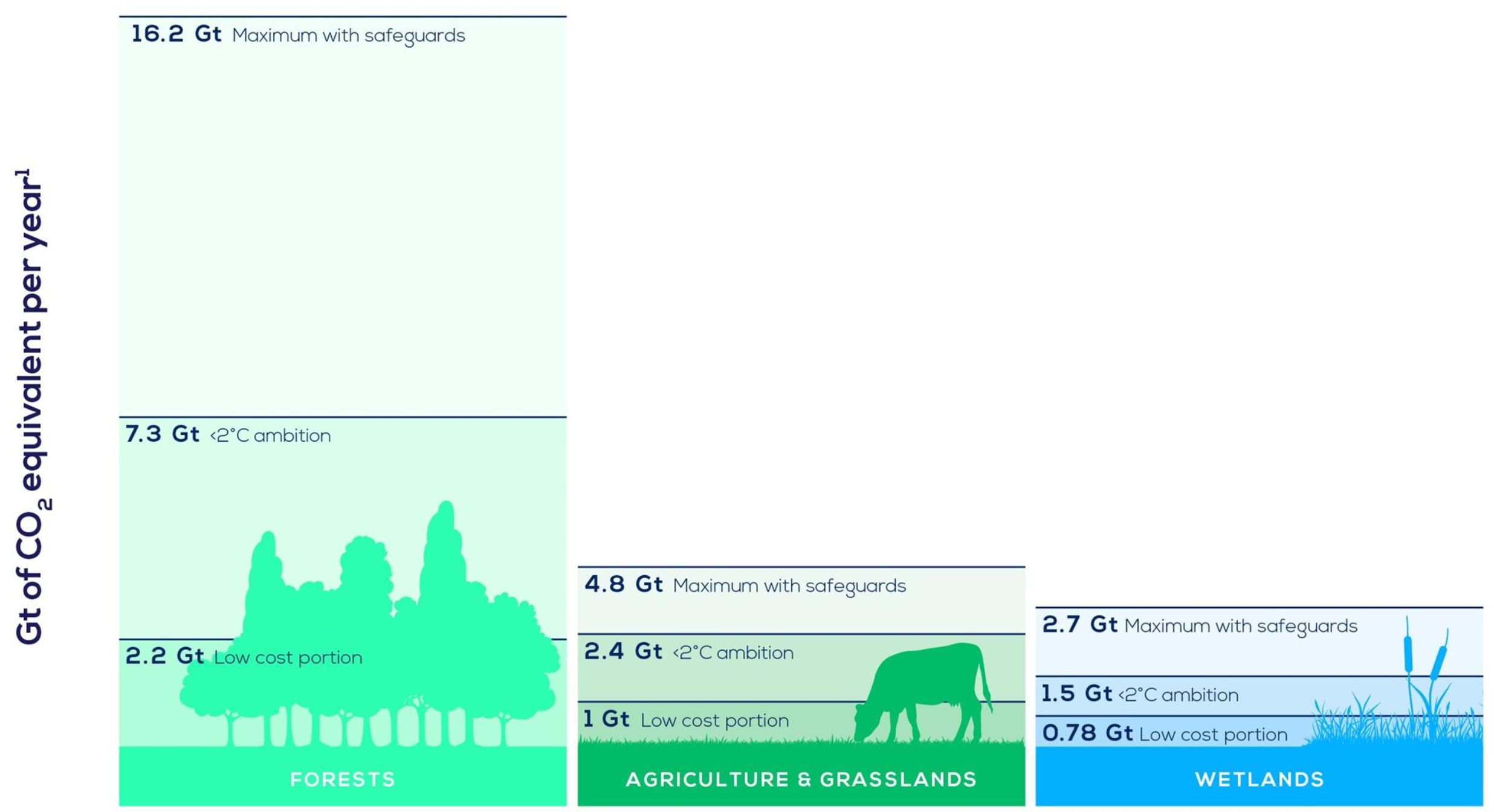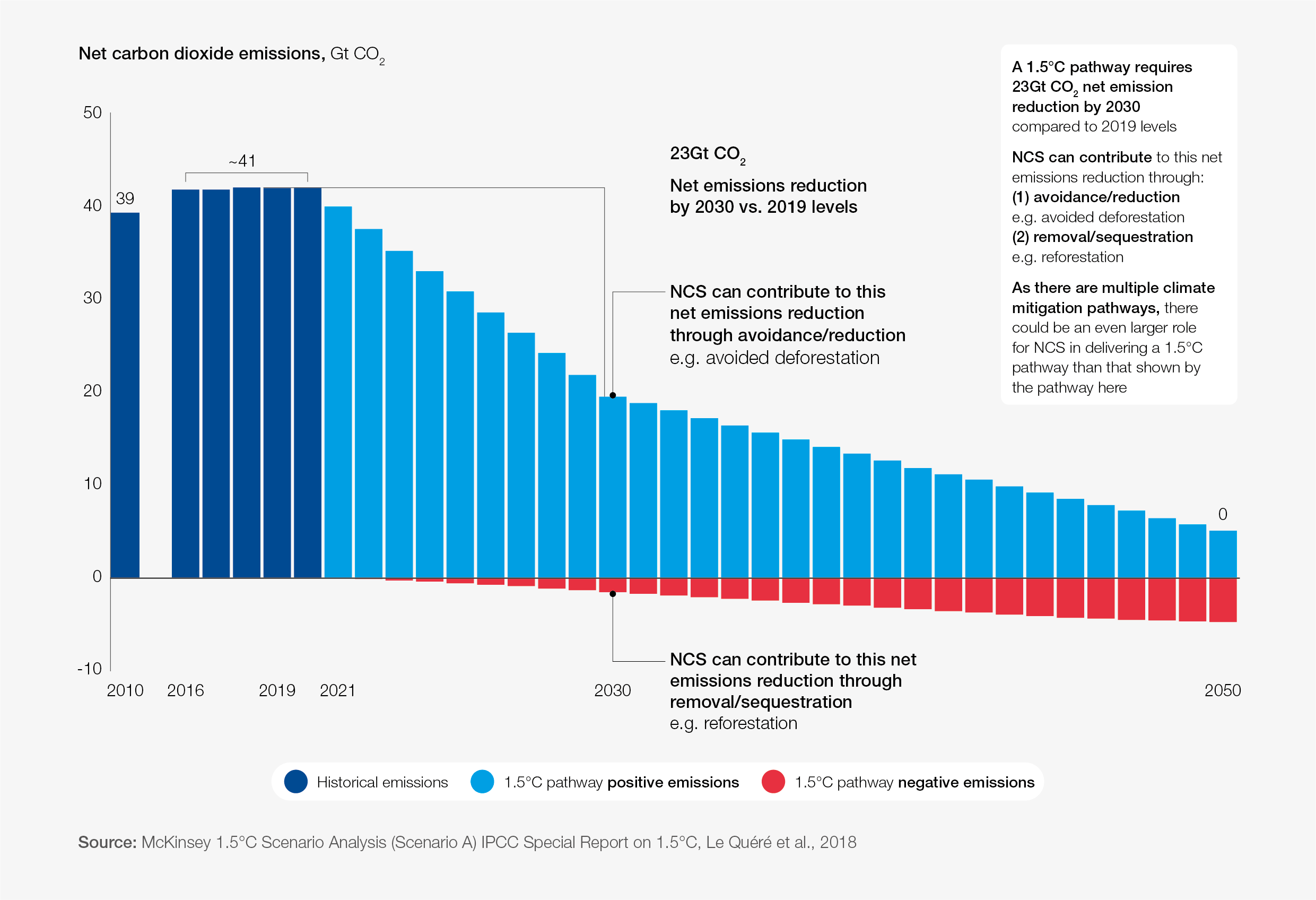3 areas of progress on climate change can help combat anxiety

A flooded field in British Columbia.
Image: REUTERS/Jennifer Gauthier.
Stay up to date:
Climate Crisis
- Many people are experiencing a sense of doom about the climate crisis.
- Being optimistic is hard when we're faced with some pretty stark outcomes.
- Solutions bound by nature offer a positive focus in the climate change fight.
The last year of my life has been full of scary and challenging moments (I mean, who can’t relate?), but for me there’s one bizarre experience that stands above the rest. I came home from the COP26 climate summit in Glasgow so excited to hit the ground running when I landed in British Columbia. Instead, I stepped off the plane just as lakes were breaching farmland and mountainsides were spewing mud across highways.
Last year was hard. My home province struggled through record-breaking heat and forest fires in the summer. Then historic flooding in the fall. Entire communities of farmland were lost. Essential roads were washed out. Thousands of people were forced to flee their homes.
The optimism I’d built up in Glasgow was immediately put to the test. As the reality of living in a changing climate sinks in, many of us are feeling anxious, powerless and fearful.
The good news? I really believe we’re making positive strides towards mitigating these disasters. It’s hard to see, but if you want to look for optimism in the face of fires and floods, here’s three often overlooked areas that remind us there’s still hope yet.
1. Advances in natural climate solutions
I noticed an encouraging shift in 2021 at events like COP26. There seemed to be a collective willingness to look at nature’s ability to help us navigate the climate crisis.
Nature-based solutions are ways of conserving, restoring and better managing ecosystems to remove carbon dioxide from the atmosphere. These solutions could provide up to 30% of the climate change mitigation needed to limit global warming, while generating trillions of dollars in economic benefits for people like farmers.
What is the World Economic Forum doing on natural climate solutions?
Consider the world today. There’s too little carbon in the soil and too much carbon in the atmosphere. One of the best ways to correct that? Photosynthesis – the thing we all learned about in grade school. Now, it would be an oversimplification to say this basic staple of life can single-handedly reverse the effects of climate change if we create more green spaces to suck up atmospheric carbon. But at a time when we need to rally the planet, it’s one of many nature-based solutions that people can get behind right now. On the smallest of scales, even planting more plants in our own gardens can make a difference.
I often found it incredible how many people involved in the fight against climate change overlooked these simple, regenerative solutions. I saw that begin to change in 2021.
2. Better data holds us accountable to climate pledges
With all pros, there are cons. A major challenge for nature-based solutions is proving them and supporting them to scale. The good news for 2022? We’re seeing so much activity at the moment on developing measurement and verification tools to establish an inscrutable business case for change.
We know these solutions to fighting climate problems can reach scale when they’re backed by hard evidence. Consider mangroves, for example. These tropical shrubs are a natural solution to protecting coasts from waves, and they’re cost effective. Studies have shown growing mangroves can be two to five times cheaper than building breakwaters, and work just as well to prevent coastal erosion. Planting mangroves went from being an overlooked defence mechanism to a no-brainer.
The same can happen for techniques like soil carbon sequestration. While storing carbon in farmland is a common sense tactic that leads to healthier crops and more resilient farms, we still need to show objective data on how much carbon is being stored and how it’s helping farm health. In fact, our company is building the tools and techniques to measure and show the myriad benefits.
The reason to be hopeful? As we continue to get better data across the board, quantifying things like soil carbon will help us stay accountable to our climate pledges.
3. Stop wasting food, start composting
Granted, all these things can feel like big fish to fry for the average person. If you want to find hope in something you can control, focus on your food waste.
Nearly one billion tonnes of food is wasted worldwide each year, accounting for 8% of the world’s greenhouse gas emissions. We produce enough food to feed the world, but much of it ends up in the landfill, where it rots and produces methane – a gas much more detrimental to the atmosphere than carbon.
However, composting converts rotting food into carbon-rich soil while keeping more emissions out of the atmosphere. In other words, reducing food waste and disposing of food and fibre more mindfully is one clear and quantifiable step we all can take to make a difference.
Nature offers the solutions
I still consider myself an optimist, but I know we have a steep hill to climb in the next few years. We’re too late to avoid climate change, but it’s not too late to change our systems, adapt and mitigate, with the hope of slowing its progress until we can someday turn the clock back bit by bit. By focusing on what we can do, looking to nature for answers, and maintaining clearer data, the world can work differently.
Indeed, that’s where I find hope: biology naturally moves back to balance. It’s been happening for millennia. There’s no doubt in my mind nature will regenerate eventually – but the future of human civilization is up to us.
Accept our marketing cookies to access this content.
These cookies are currently disabled in your browser.
Don't miss any update on this topic
Create a free account and access your personalized content collection with our latest publications and analyses.
License and Republishing
World Economic Forum articles may be republished in accordance with the Creative Commons Attribution-NonCommercial-NoDerivatives 4.0 International Public License, and in accordance with our Terms of Use.
The views expressed in this article are those of the author alone and not the World Economic Forum.
Related topics:
Forum Stories newsletter
Bringing you weekly curated insights and analysis on the global issues that matter.
More on Climate ActionSee all
A third of crucial fungi endangered, and other nature and climate stories you need to read this week
Kate Whiting and Madeleine North
April 2, 2025
Ulrich Scherbel
April 1, 2025
Nunzio Peleggi
March 28, 2025
Jack Hurd
March 27, 2025







